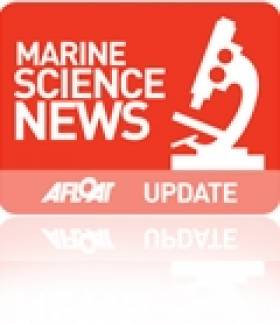Displaying items by tag: biological
New Marine Atlas Answers Important Questions
This second edition of the Atlas of the North Western Waters is now available for free download here. It has been funded under the EU MEFEPO (Making the European Fisheries Ecosystem Plan Operational) project, made up of ecologists, economists, management experts and fisheries scientists who are trying to make ecosystem-based fisheries management (EBFM) a reality in Europe. EBFM seeks to support the 'three pillars of sustainability' (ecological, social and economic) and as such includes human activity in the ecosystem.
The Atlas is intended for policy makers, managers and interested stakeholders. Its purpose is to provide a broad overview of the ecosystem of the NWW Regional Advisory Council (RAC) area with the science kept as clear and concise as possible and technical language kept to a minimum.
"Next year the European Marine Strategy Framework Directive requires an analysis of the features, pressures and impacts on member states' waters and the reform of the Common Fisheries Policy will put more emphasis on regionalising management," said Dr. Cormac Nolan of the MEFEPO project at the Marine Institute, "so this new edition of the North Western Waters Atlas, and the work of the MEFEPO team behind it, is both timely and valuable."
The first edition of the Atlas, published in 2009, was extremely well received and this 2nd edition has been updated and revised in response to stakeholder feedback. The Atlas provides up-to-date information on the physical and chemical features, habitat types, biological features, birds, mammals, fishing activity and other human activities taking place within the NWW region. There are new chapters on elasmobranchs and mariculture and the hot topic of discarding is covered in more detail. Background material on four NWW fisheries (mackerel, hake, Nephrops and scallop), which have been used as case studies in the MEFEPO project, is also presented.
























































